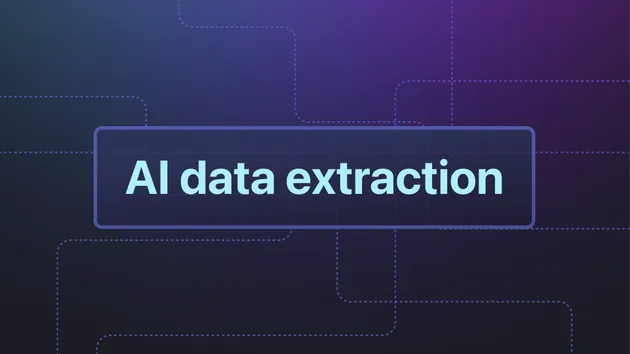AI Website Content Checker
Pricing
$19.99/month + usage
AI Website Content Checker
AI Content Checker monitors web pages for content changes and provides AI-powered summaries, visual comparisons, and smart notifications. It helps track competitors, compliance updates, and critical information.
5.0 (1)
Pricing
$19.99/month + usage
2
Monthly users
1
Runs succeeded
>99%
Last modified
11 days ago
You can access the AI Website Content Checker programmatically from your own applications by using the Apify API. You can also choose the language preference from below. To use the Apify API, you’ll need an Apify account and your API token, found in Integrations settings in Apify Console.
1{
2 "openapi": "3.0.1",
3 "info": {
4 "version": "0.0",
5 "x-build-id": "hG9fbHatwo8Z0B5L3"
6 },
7 "servers": [
8 {
9 "url": "https://api.apify.com/v2"
10 }
11 ],
12 "paths": {
13 "/acts/scraping_samurai~ai-website-content-checker/run-sync-get-dataset-items": {
14 "post": {
15 "operationId": "run-sync-get-dataset-items-scraping_samurai-ai-website-content-checker",
16 "x-openai-isConsequential": false,
17 "summary": "Executes an Actor, waits for its completion, and returns Actor's dataset items in response.",
18 "tags": [
19 "Run Actor"
20 ],
21 "requestBody": {
22 "required": true,
23 "content": {
24 "application/json": {
25 "schema": {
26 "$ref": "#/components/schemas/inputSchema"
27 }
28 }
29 }
30 },
31 "parameters": [
32 {
33 "name": "token",
34 "in": "query",
35 "required": true,
36 "schema": {
37 "type": "string"
38 },
39 "description": "Enter your Apify token here"
40 }
41 ],
42 "responses": {
43 "200": {
44 "description": "OK"
45 }
46 }
47 }
48 },
49 "/acts/scraping_samurai~ai-website-content-checker/runs": {
50 "post": {
51 "operationId": "runs-sync-scraping_samurai-ai-website-content-checker",
52 "x-openai-isConsequential": false,
53 "summary": "Executes an Actor and returns information about the initiated run in response.",
54 "tags": [
55 "Run Actor"
56 ],
57 "requestBody": {
58 "required": true,
59 "content": {
60 "application/json": {
61 "schema": {
62 "$ref": "#/components/schemas/inputSchema"
63 }
64 }
65 }
66 },
67 "parameters": [
68 {
69 "name": "token",
70 "in": "query",
71 "required": true,
72 "schema": {
73 "type": "string"
74 },
75 "description": "Enter your Apify token here"
76 }
77 ],
78 "responses": {
79 "200": {
80 "description": "OK",
81 "content": {
82 "application/json": {
83 "schema": {
84 "$ref": "#/components/schemas/runsResponseSchema"
85 }
86 }
87 }
88 }
89 }
90 }
91 },
92 "/acts/scraping_samurai~ai-website-content-checker/run-sync": {
93 "post": {
94 "operationId": "run-sync-scraping_samurai-ai-website-content-checker",
95 "x-openai-isConsequential": false,
96 "summary": "Executes an Actor, waits for completion, and returns the OUTPUT from Key-value store in response.",
97 "tags": [
98 "Run Actor"
99 ],
100 "requestBody": {
101 "required": true,
102 "content": {
103 "application/json": {
104 "schema": {
105 "$ref": "#/components/schemas/inputSchema"
106 }
107 }
108 }
109 },
110 "parameters": [
111 {
112 "name": "token",
113 "in": "query",
114 "required": true,
115 "schema": {
116 "type": "string"
117 },
118 "description": "Enter your Apify token here"
119 }
120 ],
121 "responses": {
122 "200": {
123 "description": "OK"
124 }
125 }
126 }
127 }
128 },
129 "components": {
130 "schemas": {
131 "inputSchema": {
132 "type": "object",
133 "required": [
134 "url",
135 "aiMode"
136 ],
137 "properties": {
138 "url": {
139 "title": "URL to check",
140 "type": "string",
141 "description": "URL of a web page to be monitored"
142 },
143 "aiMode": {
144 "title": "AI Mode",
145 "enum": [
146 "true",
147 "false"
148 ],
149 "type": "string",
150 "description": "When enabled, AI Mode allows you to compare the entire page or the content within specific CSS selectors using AI analysis, providing better quality of the output.",
151 "default": "false"
152 },
153 "contentSelector": {
154 "title": "Monitored area selector",
155 "type": "string",
156 "description": "CSS selector of an area you want to monitor"
157 },
158 "screenshotSelector": {
159 "title": "Screenshot selector",
160 "type": "string",
161 "description": "CSS selector of a screenshot you want to get"
162 },
163 "sendNotificationTo": {
164 "title": "Email address",
165 "type": "string",
166 "description": "Email address where you want to get the notification"
167 },
168 "sendNotificationText": {
169 "title": "Notification Text",
170 "type": "string",
171 "description": "Optional text to include in the email notification."
172 },
173 "informOnError": {
174 "title": "Notification in case of error",
175 "enum": [
176 "true",
177 "false"
178 ],
179 "type": "string",
180 "description": "In case of the problem with selectors on the page, you will get notification mail \n with the screenshot of the page attached.",
181 "default": "false"
182 },
183 "navigationTimeout": {
184 "title": "Navigation Timeout",
185 "type": "integer",
186 "description": "How long it should wait, in milliseconds, until the page times out",
187 "default": 30000
188 },
189 "retryStrategy": {
190 "title": "How to retry",
191 "enum": [
192 "on-block",
193 "on-all-errors",
194 "never-retry"
195 ],
196 "type": "string",
197 "description": "Sometimes the page doesn't load properly or the actor gets blocked so retrying those helps. On the other hand retrying wrong selector doesn't help. The recognition of blocked pages is not perfect (about 80%).",
198 "default": "on-block"
199 },
200 "loaderSelector": {
201 "title": "Until which page readiness status should the scraper wait?",
202 "enum": [
203 "networkidle",
204 "domcontentloaded",
205 "load"
206 ],
207 "type": "string",
208 "description": "Until which page readiness status should the scraper wait — networkidle or another state (networkidle should cover 90% of use cases)?",
209 "default": "networkidle"
210 },
211 "maxRetries": {
212 "title": "Maximum number of retries",
213 "type": "integer",
214 "description": "How many times the actor should retry in case of error.",
215 "default": 5
216 }
217 }
218 },
219 "runsResponseSchema": {
220 "type": "object",
221 "properties": {
222 "data": {
223 "type": "object",
224 "properties": {
225 "id": {
226 "type": "string"
227 },
228 "actId": {
229 "type": "string"
230 },
231 "userId": {
232 "type": "string"
233 },
234 "startedAt": {
235 "type": "string",
236 "format": "date-time",
237 "example": "2025-01-08T00:00:00.000Z"
238 },
239 "finishedAt": {
240 "type": "string",
241 "format": "date-time",
242 "example": "2025-01-08T00:00:00.000Z"
243 },
244 "status": {
245 "type": "string",
246 "example": "READY"
247 },
248 "meta": {
249 "type": "object",
250 "properties": {
251 "origin": {
252 "type": "string",
253 "example": "API"
254 },
255 "userAgent": {
256 "type": "string"
257 }
258 }
259 },
260 "stats": {
261 "type": "object",
262 "properties": {
263 "inputBodyLen": {
264 "type": "integer",
265 "example": 2000
266 },
267 "rebootCount": {
268 "type": "integer",
269 "example": 0
270 },
271 "restartCount": {
272 "type": "integer",
273 "example": 0
274 },
275 "resurrectCount": {
276 "type": "integer",
277 "example": 0
278 },
279 "computeUnits": {
280 "type": "integer",
281 "example": 0
282 }
283 }
284 },
285 "options": {
286 "type": "object",
287 "properties": {
288 "build": {
289 "type": "string",
290 "example": "latest"
291 },
292 "timeoutSecs": {
293 "type": "integer",
294 "example": 300
295 },
296 "memoryMbytes": {
297 "type": "integer",
298 "example": 1024
299 },
300 "diskMbytes": {
301 "type": "integer",
302 "example": 2048
303 }
304 }
305 },
306 "buildId": {
307 "type": "string"
308 },
309 "defaultKeyValueStoreId": {
310 "type": "string"
311 },
312 "defaultDatasetId": {
313 "type": "string"
314 },
315 "defaultRequestQueueId": {
316 "type": "string"
317 },
318 "buildNumber": {
319 "type": "string",
320 "example": "1.0.0"
321 },
322 "containerUrl": {
323 "type": "string"
324 },
325 "usage": {
326 "type": "object",
327 "properties": {
328 "ACTOR_COMPUTE_UNITS": {
329 "type": "integer",
330 "example": 0
331 },
332 "DATASET_READS": {
333 "type": "integer",
334 "example": 0
335 },
336 "DATASET_WRITES": {
337 "type": "integer",
338 "example": 0
339 },
340 "KEY_VALUE_STORE_READS": {
341 "type": "integer",
342 "example": 0
343 },
344 "KEY_VALUE_STORE_WRITES": {
345 "type": "integer",
346 "example": 1
347 },
348 "KEY_VALUE_STORE_LISTS": {
349 "type": "integer",
350 "example": 0
351 },
352 "REQUEST_QUEUE_READS": {
353 "type": "integer",
354 "example": 0
355 },
356 "REQUEST_QUEUE_WRITES": {
357 "type": "integer",
358 "example": 0
359 },
360 "DATA_TRANSFER_INTERNAL_GBYTES": {
361 "type": "integer",
362 "example": 0
363 },
364 "DATA_TRANSFER_EXTERNAL_GBYTES": {
365 "type": "integer",
366 "example": 0
367 },
368 "PROXY_RESIDENTIAL_TRANSFER_GBYTES": {
369 "type": "integer",
370 "example": 0
371 },
372 "PROXY_SERPS": {
373 "type": "integer",
374 "example": 0
375 }
376 }
377 },
378 "usageTotalUsd": {
379 "type": "number",
380 "example": 0.00005
381 },
382 "usageUsd": {
383 "type": "object",
384 "properties": {
385 "ACTOR_COMPUTE_UNITS": {
386 "type": "integer",
387 "example": 0
388 },
389 "DATASET_READS": {
390 "type": "integer",
391 "example": 0
392 },
393 "DATASET_WRITES": {
394 "type": "integer",
395 "example": 0
396 },
397 "KEY_VALUE_STORE_READS": {
398 "type": "integer",
399 "example": 0
400 },
401 "KEY_VALUE_STORE_WRITES": {
402 "type": "number",
403 "example": 0.00005
404 },
405 "KEY_VALUE_STORE_LISTS": {
406 "type": "integer",
407 "example": 0
408 },
409 "REQUEST_QUEUE_READS": {
410 "type": "integer",
411 "example": 0
412 },
413 "REQUEST_QUEUE_WRITES": {
414 "type": "integer",
415 "example": 0
416 },
417 "DATA_TRANSFER_INTERNAL_GBYTES": {
418 "type": "integer",
419 "example": 0
420 },
421 "DATA_TRANSFER_EXTERNAL_GBYTES": {
422 "type": "integer",
423 "example": 0
424 },
425 "PROXY_RESIDENTIAL_TRANSFER_GBYTES": {
426 "type": "integer",
427 "example": 0
428 },
429 "PROXY_SERPS": {
430 "type": "integer",
431 "example": 0
432 }
433 }
434 }
435 }
436 }
437 }
438 }
439 }
440 }
441}AI Website Content Checker OpenAPI definition
OpenAPI is a standard for designing and describing RESTful APIs, allowing developers to define API structure, endpoints, and data formats in a machine-readable way. It simplifies API development, integration, and documentation.
OpenAPI is effective when used with AI agents and GPTs by standardizing how these systems interact with various APIs, for reliable integrations and efficient communication.
By defining machine-readable API specifications, OpenAPI allows AI models like GPTs to understand and use varied data sources, improving accuracy. This accelerates development, reduces errors, and provides context-aware responses, making OpenAPI a core component for AI applications.
You can download the OpenAPI definitions for AI Website Content Checker from the options below:
If you’d like to learn more about how OpenAPI powers GPTs, read our blog post.
You can also check out our other API clients:
Pricing
Pricing model
RentalTo use this Actor, you have to pay a monthly rental fee to the developer. The rent is subtracted from your prepaid usage every month after the free trial period. You also pay for the Apify platform usage.
Free trial
Price
$19.99



